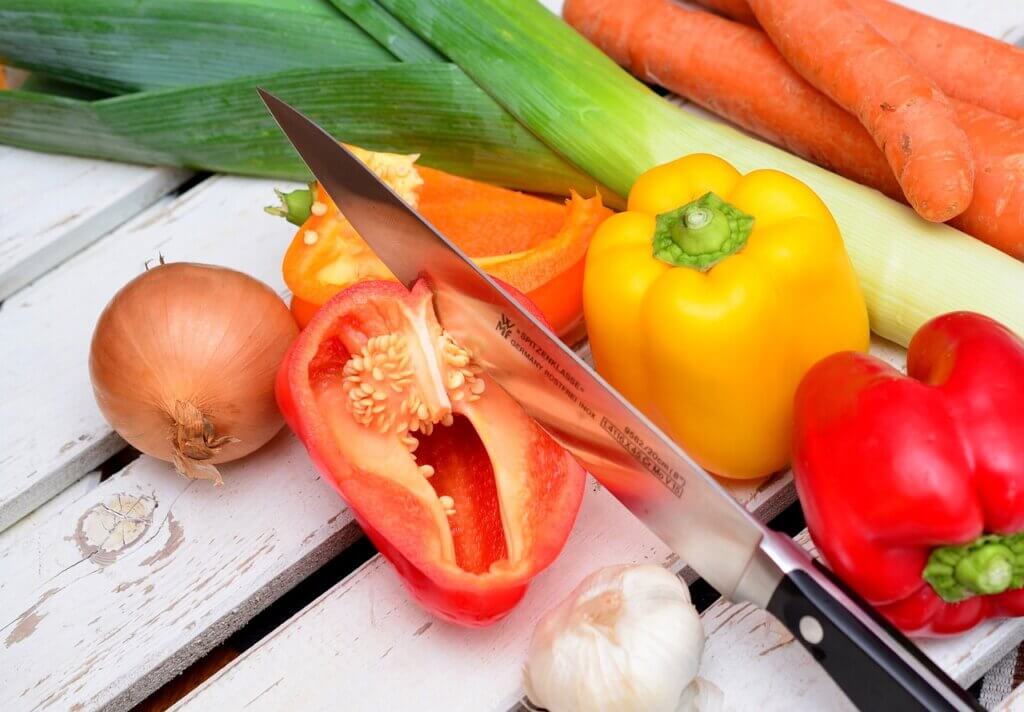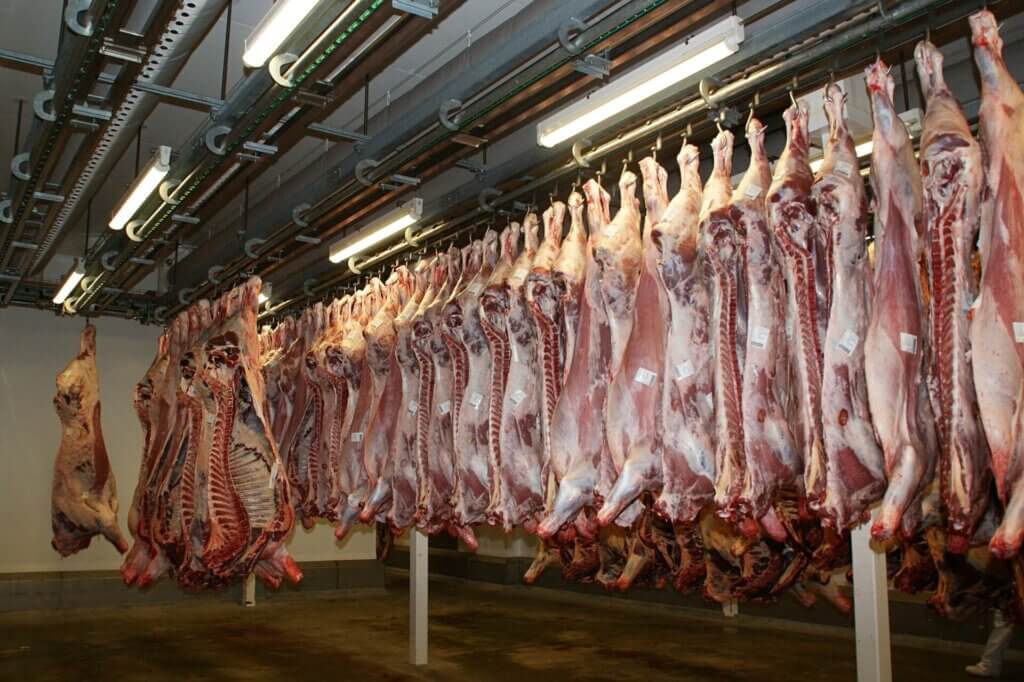What’s Up With Bone Broth?
You’ve probably seen bone broth at the grocery store—or at least come across some buzz about it on social media. But what is bone broth? Does it really deliver the health benefits that some people claim it does? How does it compare to vegan options?
Bone broth is, essentially, skeleton soup—or carcass chowder, if you will. All broths are made by cooking something in water. Vegetable broth, for instance, is made using onions, carrots, other veggies, and herbs.
So bone broth is made by cooking bones, skin, cartilage, ligaments, and tendons—usually those of slaughtered cows or chickens—in water. It could also be made using the skeleton of ducks, bison, turkeys, lambs, deer, or other animals.
In terms of the ethics involved, consuming bone broth is no different from eating meat. Bone broth is often labeled with the words “grass-fed,” “organic,” or “free-range.” But it still comes from animals whose lives were cut short on the kill floor of a slaughterhouse, where workers hung them upside down and slit their throats. Not in my soup!
What About Claims That Bone Broth Is Healthy?
People have claimed that bone broth has the ability to restore collagen. But many food scientists and nutritionists, like Dr. Kantha Shelke, says this claim is entirely untrue.
Chef and food journalist Amy Blaszyk says, “Scientists agree that bone broth’s so-called ability to heal and restore collagen is probably overblown.”
So if you’d like to avoid ingesting the liquefied remains of tormented animals and actually restore your body’s collagen, you can do these things by eating plants.
How to Restore Collagen—No Cap
Collagen is in our bones, muscles, tendons, skin, blood vessels, and digestive systems, but we produce less of it as we age. So—in addition to eating vegetables—taking vegan collagen supplements can help keep you looking and feeling good.
Improve Your Digestion
Tummy troubles got you down? Skip the dead-animal juice, and remedy your digestion woes by adding a little more fiber to your meals. You can improve the functionality of your gut by eating avocados, raspberries, artichokes, lentils, oats, and chia seeds. Or have some vegetable broth!
You can also try vegan foods that contain probiotics—like kombucha, sauerkraut, and miso—which promote a healthy digestive tract and immune system. If you’re looking for a digestive supplement, check out our favorites by Deva Nutrition.
Protect Your Joints
Do you like berries? Well, you’re in luck, because you can eat your way to healthier joints one berry at a time. Many vegan foods—including berries, nuts, orange-colored vegetables, and dark leafy greens—contain antioxidants and anti-inflammatory compounds that are effective at reducing joint stiffness and pain. Plus, you’ll also reap all the other benefits that these superfoods provide.
For added joint health, you can take vegan supplements containing glucosamine, calcium, magnesium, and vitamin D from Deva Nutrition. Deva’s got you covered!
Get Healthier Skin, Hair, and Nails
Who doesn’t want radiant skin and hair that glows like Beyoncé’s ? Vegan collagen supplements can help you get glowing skin, silky hair, and strong fingernails. You can even prevent future degeneration by taking a vegan biotin supplement or a hair, skin, and nails supplement like the Organic Collagen Support offered by Amazing Grass.
Live Your Best Life: Go Vegan
Forget the nonsense fads. Bone broth is nothing more than a cruel soup du jour—and like many trends, it won’t be around for long. All you need in order to restore collagen and live your best life is some well-balanced vegan nutrition.
Learn more about the benefits of vegan living: Order a free peta2 “Guide to Going Vegan” today!
Text peta2 to 30933 for ways to help animals, tips on compassionate living, and more!

Terms for automated texts/calls from peta2: http://peta.vg/txt. Text STOP to end, HELP for more info. Msg/data rates may apply. U.S. only.






